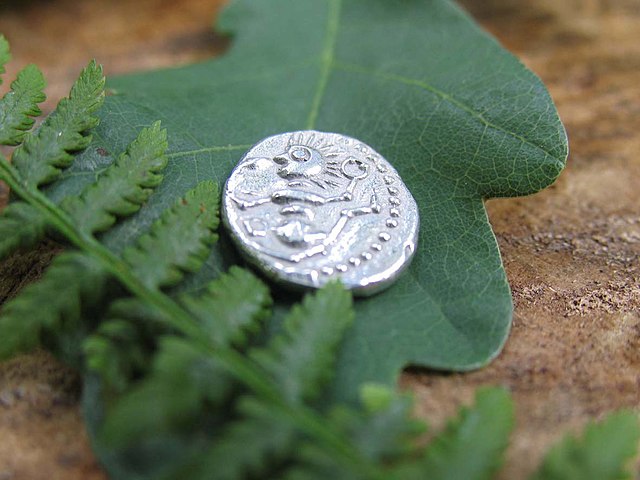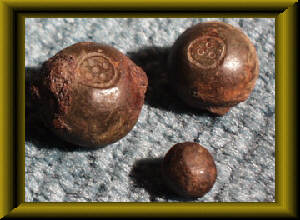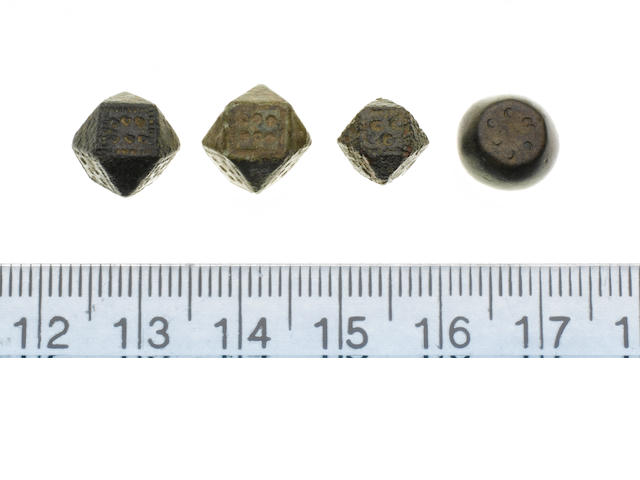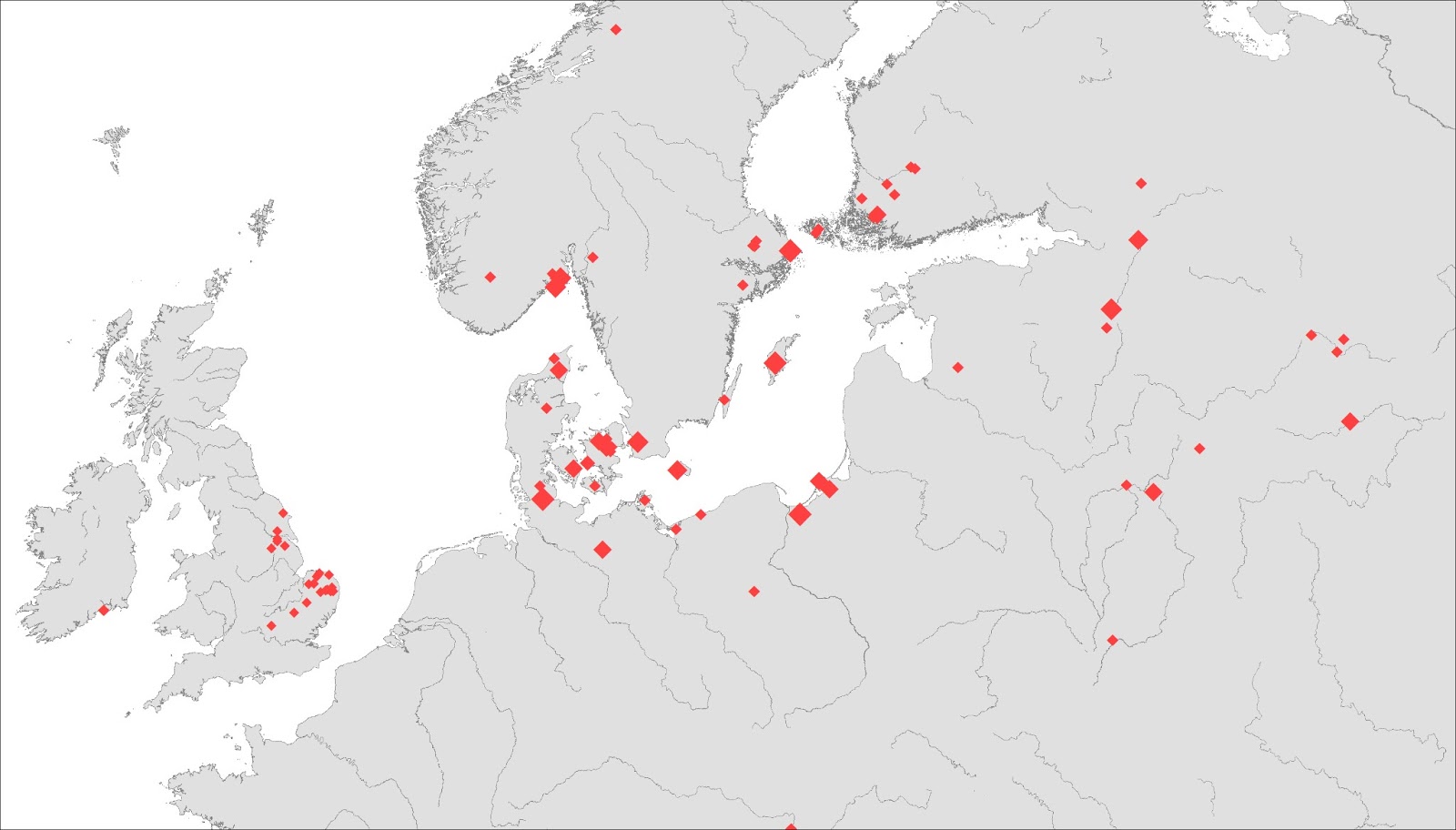Vedun:
could you, please, give us a list of these 300 slavic words in scandinavian languages without link with continental germanic? It would be very interested
NFrank:
I appreciate your love of precision anddocumentation-
just some points :
« mythicized « ?Perhaps... But not only Frankish scholars but Breton monks toodescribed the fear the Vikings spred in western Europe... theprotection against these pirates was part of the prayers at that time- For Normandy, it is a very good « leg » to pirates madeby a powerful king so... all the way Vikings norse gave usplacenames in Normandy and people surnames too, even in farnorth-eastern Brittany – it's history, not myth- concerningCologne/Köln I don't know and trust your lectures, all the way,Cologne (a celtic name, I think) is far from the northern shores ofGermany-
for physical anthropology, the 19th Cymaritime or rural population of Schlesvig-Holstein showed yetstatistical differences between the most maritime compared to mostinland ones, the first ones being more dolichocephalic and higherstatured, in short more 'nordiclike' (whatever the sense we put itit) – some « old » scholars attributed that to a Vikinginfluence : I have no archeology nor history record on thispossibility – it could have other (ancient and modern reasons), itis true so...
I don't doubt that Normans settled in the Normandy, and Danes of course also collected the Danegeld in England. But the latter, I believe, wasn't extraordinary - collecting tribute was quite common practice since antiquity.
The interesting thing is that Viking expansions into the North Sea, the Atlantic and the Mediterranean correspond to periods when there was shortage of supply of Arab silver to the Baltic Sea region. The economic base of the Vikings / Varangians was trade via Novgorod and the Kiev Rus (along the Volga and Dnieper rivers) with the Eastern Mediterranean, the Arab Caliphates, also the western end points of the Silk Road (and the Hanseatic League, after several wars with Denmark, later stepped into that business). Occasionally, you had some Tartars, Magyars etc. temporarily cutting of that trade link, and in those periods the Vikings turned westwards. When the Golden Horde finally closed the eastern trade route, the Normans re-oriented towards the Mediterranean and conquered Sicily as their new hub for trade with the orient.
Of course, when the first Viking pioneers started to look for alternative routes, they made the experience that their merchandise (amber, fur, honey, blonde hair etc.) wasn't nearly as popular along the Atlantic as in the Middle East. Seafaring makes hungry, and the wife at home expects some gold and silver, so what do you do? Robbing and looting. Not the nicest behaviour, but also not really extraordinary (->Crusaders, Arab & Barbary pirates, Venice, Sir Francis Drake, etc.)
As to Cologne, you really disappoint me.
Colonia Claudia Ara Augusta Aggripinensium is of course a Roman name. Empress Agrippina honoured her home town and in 50 AD had it elevated to the provincial capital of Germania Inferior. Before, it was known as
oppidum ubiorum. The Ubii, federates of Caesar, had been resettled by him from the right to the left bank of the Rhine to protect them from incursions by the Chatti (Hessians), and to repopulate the former terrain of the Celtic Eburones after their failed revolt in 54 BC. While Caesar lists the Ubii as Germanic, they had a number of Celtic cultural features, including minting own coins according to Gallo-Celtic standards (photo below). The former capital of the Eburones, Bonn (bona), however, has a Celtic name, as has Vindobona (Vienna).
Cologne isn't further away from the coast than Paris, and it isn't that difficult to get there by boat up the Rhine.
Along the west coast of Schleswig-Holstein, you primarily find Frisians. The North Frisians are believed to have immigrated from the Ems area around the 8th century. Further south, and along the banks of the Lower Elbe, the lands are quite flood prone and were hardly settled during the early medieval. Well, whom do you call in when it comes to building dykes and draining wetlands? Of course, the Dutch (or better- the coastal Dutch, i.e. the West Frisians) - they colonised the area during the High Medieval. Place names like Hollern, Hollenstedt, or "Altes Land" (<Hol-land) still testify that colonisation. Further inland was traditional Angles (Schleswig) and Saxon (Holstein) land, and East Holstein was Slavic until the 12th century, and then colonised by Saxons, Westphalians and Flemish.
The Frisians (West, East and North) were legendary pirates during the middle ages, and sailed to all parts of the world from the 16th century on, so we may have some kind of shared Viking-Frisian tradition here. There is surely also genetic linkage (yDNA I, etc.) but I suppose that linkage is much more ancient, and can't be attributed to the Vikings.






